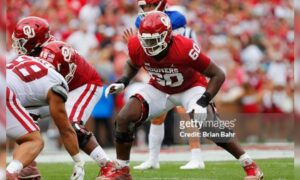This certainly should not come as a surprise to you if you know anything about Kevin Colbert and Mike Tomlin. And we’ve broached the topic before. But they’re not big into analytics, including during the draft process.
Both summed up analytics as a useful tool but not one that can measure the desire and commitment of a player.
“The analytics, again, it’s advanced statistics. There’s some different things they can research now, fumbles, fumbles per touch, all that other stuff, you can factor it in. We don’t have any formula or any quotient, it’s just a piece of the puzzle.”
Colbert said a players success boils down to other factors.
“At the core, you’re still looking for football players. Once we ca figure out if we can measure a mind or a heart, then we have something…how are you going to figure out who is going to make a play when you’re dead tired and you’re down six and we need seven. The only thing you can rely on are the players who have done it for his team and hope he can do it for yours.”
Tomlin jumped in with a quip of his own.
“If the analytics guys can develop a ‘will’ index, they’re on the cutting edge.”
Again, none of this should be a surprise. For better or worse, I’ll let you all decide that in the comments below, the Steelers take an old-school approach to their evaluation. That applies to the draft and in-game situations. Here’s what Tomlin said in December.
“We don’t overanalyze circumstances. We don’t use analytics. We play and we play to win.”
That echoes what he stated back in 2015.
“I got a lot of respect for analytics and numbers, but I’m not going to make judgements based on those numbers. The game is the game. It’s an emotional one played by emotional and driven men. That’s an element of the game you can’t measure. Often times decisions such as that weigh heavily into the equation.”
And when Colbert thinks “fumbles per touch” is an advanced stat, you realize how little they’re leaning on the math. The team does have an analytics department, a one man band named Karim Kassam, who will be entering his third year with the team. But maybe even that was a matter of convenience, considering he was working for a company owned by Thomas Tull, part-owner of the Steelers.
Analytics could play a small role in the process and its impact may grow but it’s clear the driving factor behind the team’s picks will be that “it” factor. Whatever “it” is.








